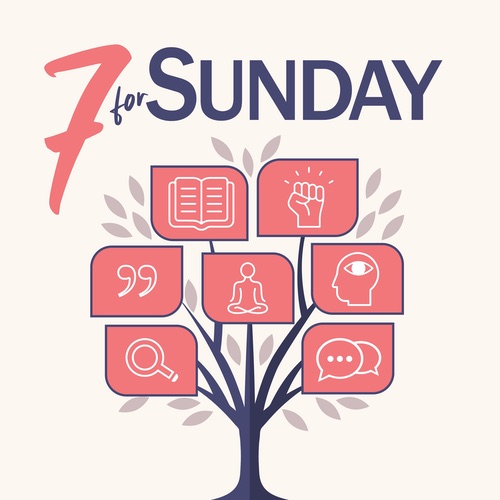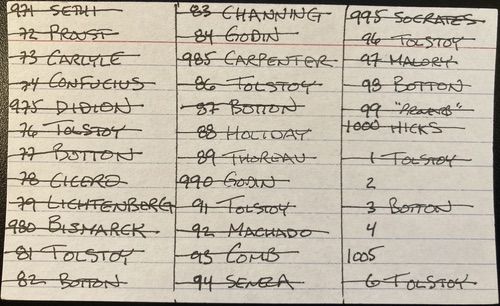This is not a passive-aggressive maneuver to get you to scroll to the bottom, read the footer and consider supporting my work. (It would mean a lot though if you did.)
This is a serious question which I ask myself at a frequency approaching every minute. All the benefits are not directly measurable.
Exposure — In order to ensure I have material to write posts, I have various processes and systems that force me to skim an insane amount of stuff pretty much every day. If you imagine skimming my weekly email in a second or two, that’s 7 items. I skim about 300 to 500 items every day. A small number each day catch my attention enough that I toss them on my read-later queue. There are 764 things on that queue at this instant. It takes me significant time to read them, but often just a few seconds to realize, “yeah this is going to be a blog post” (and then I go on reading to the end and then I write the post.) If I stopped blogging, would I still do all that work to be exposed to ideas?
Learning — Writing blog posts creates a third “imprint” in my mind. First a glance, then a read, and then thinking about it. Even if I sometimes abort the blog post mid-writing, it’s still three different repetitions. And I have software that feeds me my own blog posts (“what did I post 10 years ago, today?” etc.) so I am constantly re-reading everything on this site; that’s more repetitions as things drift into history.
Integration — If I write a blog post about it, I generally try to figure out its relationship to everything else. Adding blog tags is the most obvious bit of integration. But figuring out what to pull quote involves deciding what is salient to me. And deciding which part(s) I want to focus on, magnify, or disagree with requires further integration.
Writing — Thoughts swirl in my mind. Characters appear on my screen. There are several skills one can work on between those two sentences.
All of that goes into feeding my personal growth and priming my curiosity. Since good conversation is powered by genuine curiosity, all that stuff also enables my person mission.
Should I keep blogging? It doesn’t feel like stopping is realistically an option.
ɕ


